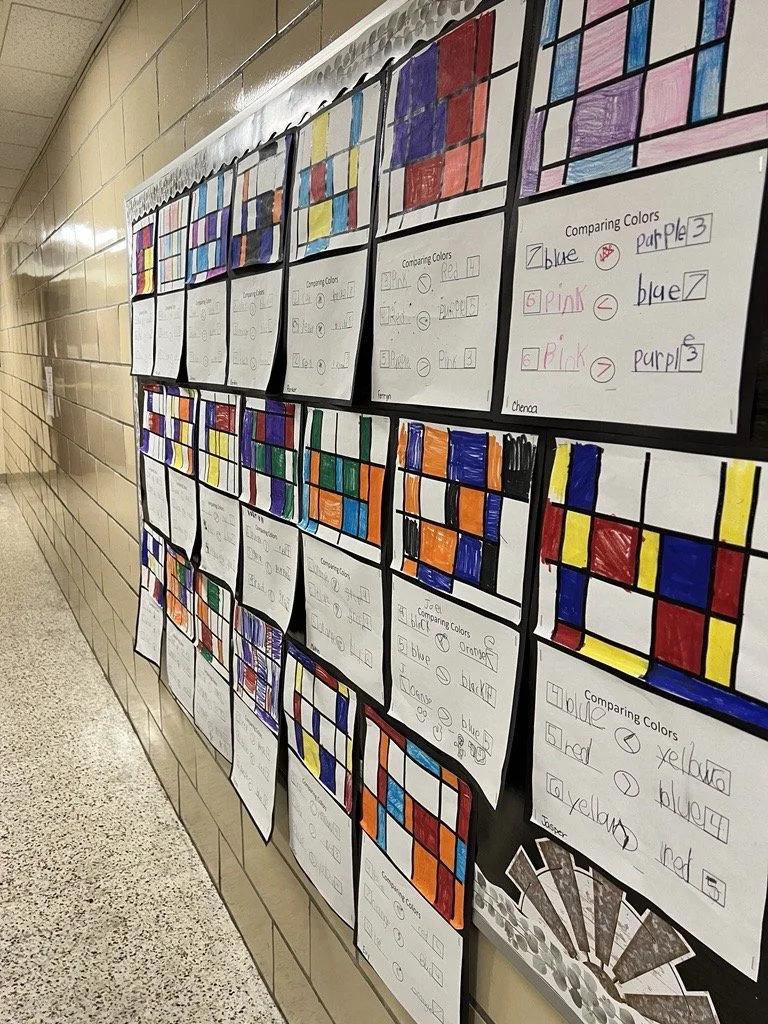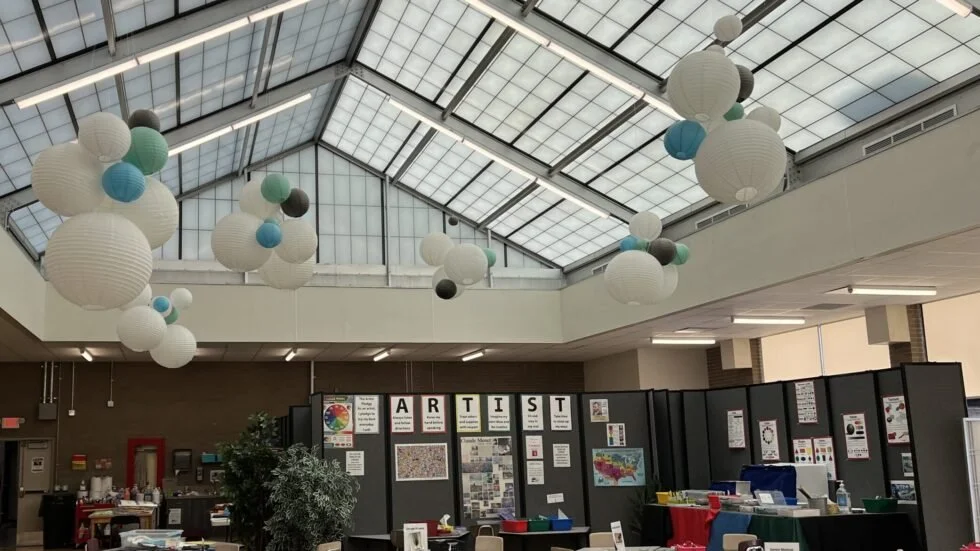School Frontiers Blog
Here you’ll find expert advice and useful tips to help educators and administrators improve their schools. Stay up to date with new ideas and the latest trends in education.
Why SMART Goals Make or Break Your Strategic Plan
The point of planning is to organize a team and resources into a system that achieves a particular goal or set of goals that fit into a larger vision for an organization or a community. However, not all goals are created equal. Many plans start with big ambitions and inspiring language, but without clear direction, they fade into wishful thinking. Weak results are often the result of weak, poorly articulated goals. A strategic plan is only as strong as the goals that drive it. That’s where SMART goals come in.
Why Most Strategic Plans Fail and Gather Dust: They’re Focused on the Wrong Problems
It’s not that organizations don’t plan—it’s that they often plan for the wrong things. Strategic plans fail most often not because people don’t care or don’t work hard, but because they begin with the wrong questions and lack a clear framework for meaningful change.
Making Data Fun: Harnessing Student Engagement Through Arts & Mathematics
School Frontiers recently had the incredible opportunity to lead a professional development workshop for one of our clients, with 100 staff members. The presentation focused on the academic performance expectations for the school as required by their authorizing district and the school’s current academic standing. Typically, “data,” “academic expectations,” and “mathematics” are not words that would spark excitement, especially at 8:30 AM, but our workshop was filled with laughter and genuine engagement.
Grading for the Artificially Intelligent Age
We can still remember a time when grades served a distinct, simply-defined purpose. We are not so far removed now. Grades are still supposed to measure what students have learned, how well they can follow instructions, or performance on standardized assessments. The letters or numbers represent knowledge and capabilities within a given subject. But with the rise of AI augmenting education, it is much easier for a student to automate their performance, supplying information that they do not themselves have to learn or know, in order to pass. Acing a quiz with the help of ChatGPT means that A does not reflect anything about someone’s understanding or ability, merely access to the internet and the copy-paste function.
The Death of Reading is on the Horizon. Should We Care?
As a collective, our reading skills, and our reading experiences, have been steadily declining over the past two decades. Attention span, critical thinking, reading comprehension–all appear to be dwindling in the US. Per the nation’s report card (NAEP), students’ reading performance scores have shown significant decreases in the past few years, trending downwards since 2019. What’s going on with reading, and in the age of easy video and multimedia, does it matter? America’s pivot to a more digitally based K-12 education model in response to the COVID-19 pandemic has brought more video content into our kids’ education. A decline in our collective ability to devote our attention to reading and writing could indicate a potentially larger problem in our ability to reason effectively through complex, multi-step problems. The technologically-augmented world we now inhabit encourages the shrinkage of our attention, and the death of thinking in-depth, because the number of furtive interactions soars when we only devote a couple of seconds to anything. And, we risk losing extended reasoning skills to an endless, scrolling stream of non sequiturs.
Cooperating with AI in Education
Artificial Intelligence has exploded into our lives over the last several years, reshaping various aspects of public and private existence. It has even influenced the relatively change-resistant landscape of education. Every billionaire in the world and their best friends are all touting the benefits of AI. Can we really be on different sides when it is becoming impossible to completely disengage with AI? The billionaires may have been wrong about certain things so far, but their interests nevertheless become our future.
O Teacher, Where Art Thou?
Every day, sifting through the vast metaverse that is the Internet, I see new misinformation posted. It appears designed to mislead and misdirect people, strewn out into every corner. Occasionally, I’ll scroll down to find the comment sections filled with people who seem to have fallen for total nonsense. Everywhere, people are posting copied, botted fragments or memes generated from scraping the responses of others. I wonder what the point is of these provably fake posts. Is it purely for entertainment? To make money, to induce certain emotion, to pull political strings in a particular direction? Or perhaps just to pass the time with no point at all? I am concerned about this type of nonsensical mental crowding, as everything we see affects us, seeding thoughts in our heads. Inundated as we are with information, words and images pressed against our eyelids on every platform, we still respond, even subconsciously. We are in dire need of a guide, a person to help us to discern truth from fiction—a teacher.
Charter Schools: The Next Generation
Not long ago, very few people had ever heard of charter schools. That’s understandable, as the first charter school only opened in 1992 (in Minnesota). As recently as the year 2000, when I would tell people in Philadelphia that I worked with charter schools, the most common reaction I would get was “What is a charter school?” and “How much does it cost?” Fast forward to today, 33 years after the opening of the first school, and now there are over 8,000 charter schools serving over 3.7 million students in 45 states–and there are almost as many charter school students in Philadelphia as there are traditional public school students. So, how did we get here? Was there a particular person who made a significant contribution to the rapid growth of these schools? And can understanding where charter schools have come from give us an idea of where they may be headed? Read on–let’s see if we can dig into these questions a bit.
Planting Seeds of Creativity: Why We Need Caring, Engaged Teachers Now More Than Ever
In seventh grade, my science class was never boring. We baked cakes, wrote musicals, and planted a garden on school grounds. My teacher went out of her way to ensure all of her students learned the material and retained it by making the whole experience fun and compelling. We often had group projects where we could take creative liberties, so all final products would be unique and representative of the people involved. In randomly selected groups, students had opportunities to bond and meet up outside of school with kids who weren’t already their closest friends, and we were then encouraged to share our strengths and interests to divide up the work efficiently.
Universal School Choice looms nearer. Is your school ready?
As America enters an era of parent-driven school choice unseen before in America, competition among schools for students is about to ramp up significantly. School leaders: it’s time to ready your school for this marketplace, or you risk losing your students, parents and school to more vocal, prepared options. Choice and its correlate, competition, have always been the American way. So, it was inevitable that parental school choice would become a major focus of how we approach providing education. Educating children has always been the primary responsibility of parents and guardians, who would cobble together options such as tutors, home schooling, summer programs. Now, the role of parents in choosing educational paths for their children is accelerating rapidly.
Why a School’s Reputation is so Important, and How to Build that Reputation through Data-Driven Stories
A school’s reputation is everything. It shapes its future, drives enrollment, and keeps its energy and extra funds flowing. When performance is slipping—test scores down, attendance low, graduation rates dropping—word gets out and families start looking elsewhere. When that happens, enrollment falls, cash reserves dry up, and the cycle spirals down. But the reverse is also true—when a school’s reputation is up, parents talk positively and enrollment grows. Partnerships blossom, enthusiasm and optimism surround the staff and school. But what makes a school’s reputation, and how can a solid, data-enriched story build a compelling narrative that has people buzzing? Data can tell stories, and it’s up to you, school leaders, to tell those stories well. If you don’t, other people will tell them for you, and they may not show your school in flattering light.
Is Data Analysis the Way to Fix School?
As an education data consultant working closely with charter schools, I’ve seen firsthand the transformative power of data analysis. It’s a tool that, when wielded correctly, can illuminate paths to improvement, drive strategic decisions, and ultimately enhance both school and student success. However, data analysis is not a panacea. It is an essential part of the solution, but it works best when integrated with other key components of educational excellence.
What Makes 21st Century Programs Shine? Four Insights
It’s easy to get wrapped up in the daily logistics of running an afterschool program, with many people, materials and schedules to keep track of. Those details can be so all-encompassing that it is easy to lose sight of the main goal—making sure that all activities we offer have obvious educational value to our students. We should be able to answer YES! to questions like these: Are my students gaining new skills and content with this activity? Does this activity excite my students about learning? If the answer is… “Maybe?” Or “I’m not really sure,” we suggest a few ways to dive in and make sure that your activities are clearly hitting the mark that makes 21st C CLC such a great program.
Are we making real change with our academic interventions?
A few weeks ago, I was talking with an elementary school principal I know about her students’ recent test scores, which she was not happy with. The school had been paying for an expensive math curriculum and associated math prep materials for years, but her students’ math scores were not good and didn’t seem to be improving, despite adding some computer assisted learning. Her dilemma, she explained, was that her school’s teachers liked the math program and wanted to keep it going, whereas she felt that the students needed a different approach in order to make appreciable growth and get near their growth targets.
Meet the Team
Founded in 1997 as FRONTIER 21 Education Solutions by Dr. Alex Schuh, School Frontiers, LLC rebranded in 2019 to emphasize how schools are positioned at the frontier of innovation, learning, and the future. In recent years, School Frontiers has grown to include the brightest minds in research, evaluation, and data analysis, forming a tight-knit team focused on education solutions. We are excited to introduce you to our team and our work at School Frontiers.















